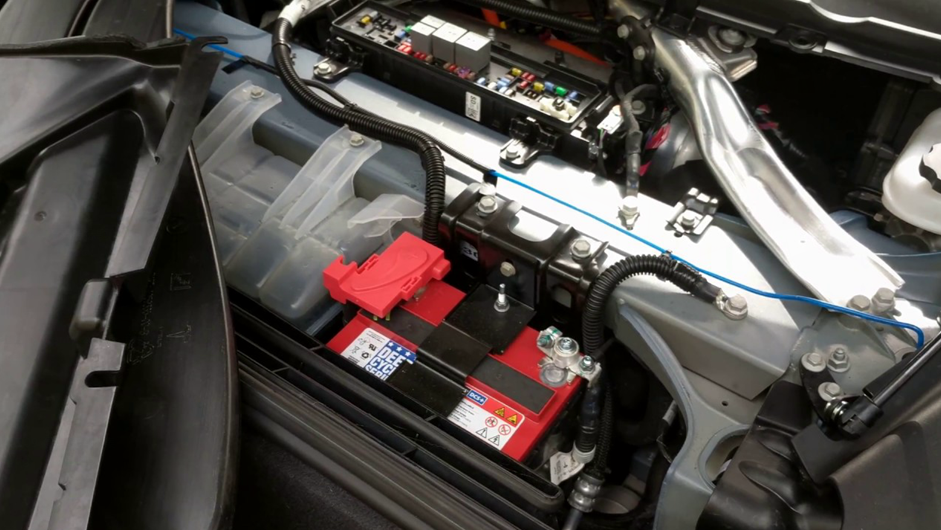Ապագայի հզորացում. մարտկոցների արդյունաբերական հատվածի վերելքը
In recent years, there has been a significant increase in the demand for batteries. From portable electronics to electric vehicles, batteries have become an essential part of our everyday lives. This growing demand has led to the rise of the battery industrial sector, which is now playing a crucial role in shaping the future of energy storage.
With the increasing concern for global warming and the need to reduce greenhouse gas emissions, there is a growing emphasis on renewable energy sources. However, one of the major challenges with renewable energy is the intermittent nature of sources such as solar and wind. This is where batteries come into play. They provide a reliable and efficient way to store excess energy generated during peak times and release it during periods of low production.
The battery industrial sector is not limited to just one type of battery. There are various types of batteries available, each with its own unique characteristics and applications. One of the most common types is the lithium-ion battery, which is widely used in portable electronics and electric vehicles. These batteries offer high energy density, long cycle life, and low self-discharge rates, making them ideal for applications that require a compact and lightweight power source.
In recent years, there have been significant advancements in battery technology, leading to the development of more efficient and cost-effective batteries. For instance, researchers are working on solid-state batteries, which offer higher energy density and improved safety compared to traditional lithium-ion batteries. These advancements are expected to revolutionize the battery industrial sector, making batteries more affordable and accessible to a wider range of applications.
The rise of the battery industrial sector has also created new opportunities for job growth and economic development. Battery manufacturing facilities require a skilled workforce to design, produce, and maintain batteries. As the demand for batteries continues to increase, so does the need for skilled workers in this sector. This has led to the creation of new jobs and the growth of local economies in regions where battery manufacturing facilities are located.
Furthermore, the battery industrial sector has also triggered innovation and research in related fields. Scientists and engineers are constantly exploring new materials and technologies to improve battery performance and energy storage capabilities. This has led to collaborations between universities, research institutions, and private companies, fostering a culture of innovation and technological advancement.
In addition to the environmental benefits and economic opportunities, the battery industrial sector is also driving the transition to a sustainable energy future. As more renewable energy sources are integrated into the power grid, there is a need for large-scale energy storage solutions. Batteries can play a crucial role in balancing supply and demand, stabilizing the grid, and enabling the integration of renewable energy sources on a larger scale.
However, the battery industrial sector is not without its challenges. One of the major concerns is the environmental impact of battery production and disposal. The extraction of raw materials, such as lithium, cobalt, and nickel, can have adverse effects on the environment if not managed properly. Additionally, the disposal of batteries after their end-of-life can lead to pollution if not handled through proper recycling processes.

To mitigate these challenges, there is a need for sustainable battery production and recycling practices. Governments and industry stakeholders are working together to develop regulations and standards for responsible battery manufacturing and disposal. Additionally, efforts are underway to develop new battery chemistries that rely on abundant and environmentally friendly materials.
In conclusion, the rise of the battery industrial sector is transforming the way we store and utilize energy. Batteries are becoming an indispensable component of our energy infrastructure, enabling the widespread adoption of renewable energy sources and driving the transition to a sustainable future. With ongoing advancements in battery technology and increasing investments in research and development, the future of the battery industrial sector looks promising.
-
 When it comes to getting your car started, there nothing more important than having a reliable battery. Whether you in a hurry to get to work or just want to enjoy a leisurely Sunday drive, a dead battery can ruin your plans in a second. Fortunately, there is an easy solution to this problem: a car starter battery pack....Կարդալ ավելին
When it comes to getting your car started, there nothing more important than having a reliable battery. Whether you in a hurry to get to work or just want to enjoy a leisurely Sunday drive, a dead battery can ruin your plans in a second. Fortunately, there is an easy solution to this problem: a car starter battery pack....Կարդալ ավելին -
 In recent years, there has been a significant shift towards electric vehicles (EVs) as the world seeks cleaner and more sustainable transportation options. As the demand for EVs continues to rise, it has become increasingly important to develop advanced battery technologies to power these vehicles. One such technology that is gaining attention is the lithium van battery, which holds great...Կարդալ ավելին
In recent years, there has been a significant shift towards electric vehicles (EVs) as the world seeks cleaner and more sustainable transportation options. As the demand for EVs continues to rise, it has become increasingly important to develop advanced battery technologies to power these vehicles. One such technology that is gaining attention is the lithium van battery, which holds great...Կարդալ ավելին -
 Այսօրվա արագընթաց թվային աշխարհում արտադրողականությունը առանցքային է: Բիզնեսի մասնագետներից մինչև ուսանողներ, հուսալի և արդյունավետ ԱՀ մկնիկ ունենալը կարևոր է առաջադրանքները արագ և ճշգրիտ կատարելու համար: Այնուամենայնիվ, ոչինչ ավելի հիասթափեցնող չէ, քան մկնիկը, որը մշտապես նոր մարտկոցների կարիք ունի: Հենց այստեղ է գործարկվում PC Mouse Lithium Battery-ը` երկարատև էներգիայի լուծում, որը բարձրացնում է արտադրողականությունը, ինչպես...Կարդալ ավելին
Այսօրվա արագընթաց թվային աշխարհում արտադրողականությունը առանցքային է: Բիզնեսի մասնագետներից մինչև ուսանողներ, հուսալի և արդյունավետ ԱՀ մկնիկ ունենալը կարևոր է առաջադրանքները արագ և ճշգրիտ կատարելու համար: Այնուամենայնիվ, ոչինչ ավելի հիասթափեցնող չէ, քան մկնիկը, որը մշտապես նոր մարտկոցների կարիք ունի: Հենց այստեղ է գործարկվում PC Mouse Lithium Battery-ը` երկարատև էներգիայի լուծում, որը բարձրացնում է արտադրողականությունը, ինչպես...Կարդալ ավելին -
 The lifespan of a Lifepo4 battery depends on various factors such as usage, storage conditions, charging habits, and maintenance practices. Lifepo4 batteries are known for their durability and longevity, making them a popular choice for various applications. On average, a Lifepo4 battery can last up to 2000 cycles or more, which translates to around 10 years of use for...Կարդալ ավելին
The lifespan of a Lifepo4 battery depends on various factors such as usage, storage conditions, charging habits, and maintenance practices. Lifepo4 batteries are known for their durability and longevity, making them a popular choice for various applications. On average, a Lifepo4 battery can last up to 2000 cycles or more, which translates to around 10 years of use for...Կարդալ ավելին -
 As the world pays increasing attention to environmental protection and sustainable development, electric vehicles have become an ideal choice for future travel. Electric vehicles have emerged as a promising solution to reduce carbon emissions and dependence on fossil fuels. At the heart of the success of electric vehicles are lithium batteries, which offer numerous advantages that make them a key...Կարդալ ավելին
As the world pays increasing attention to environmental protection and sustainable development, electric vehicles have become an ideal choice for future travel. Electric vehicles have emerged as a promising solution to reduce carbon emissions and dependence on fossil fuels. At the heart of the success of electric vehicles are lithium batteries, which offer numerous advantages that make them a key...Կարդալ ավելին -
 On a camping trip that pursues freedom and nature, the reliability of power supply is undoubtedly a key factor affecting the travel experience. Lithium campervan batteries bring unprecedented convenience and comfort to camping enthusiasts with their excellent battery life and lightweight design. Whether it is wild camping, RV travel or adventure activities, it can provide stable and efficient power support...Կարդալ ավելին
On a camping trip that pursues freedom and nature, the reliability of power supply is undoubtedly a key factor affecting the travel experience. Lithium campervan batteries bring unprecedented convenience and comfort to camping enthusiasts with their excellent battery life and lightweight design. Whether it is wild camping, RV travel or adventure activities, it can provide stable and efficient power support...Կարդալ ավելին -
 Power supply and battery charger are two commonly used electronic devices that provide power to various devices. However, despite their similarities, they have distinct differences in terms of their functions, designs, and applications. In this article, we will explore the differences between power supply and battery charger. Function The main function of a power supply is to convert...Կարդալ ավելին
Power supply and battery charger are two commonly used electronic devices that provide power to various devices. However, despite their similarities, they have distinct differences in terms of their functions, designs, and applications. In this article, we will explore the differences between power supply and battery charger. Function The main function of a power supply is to convert...Կարդալ ավելին

